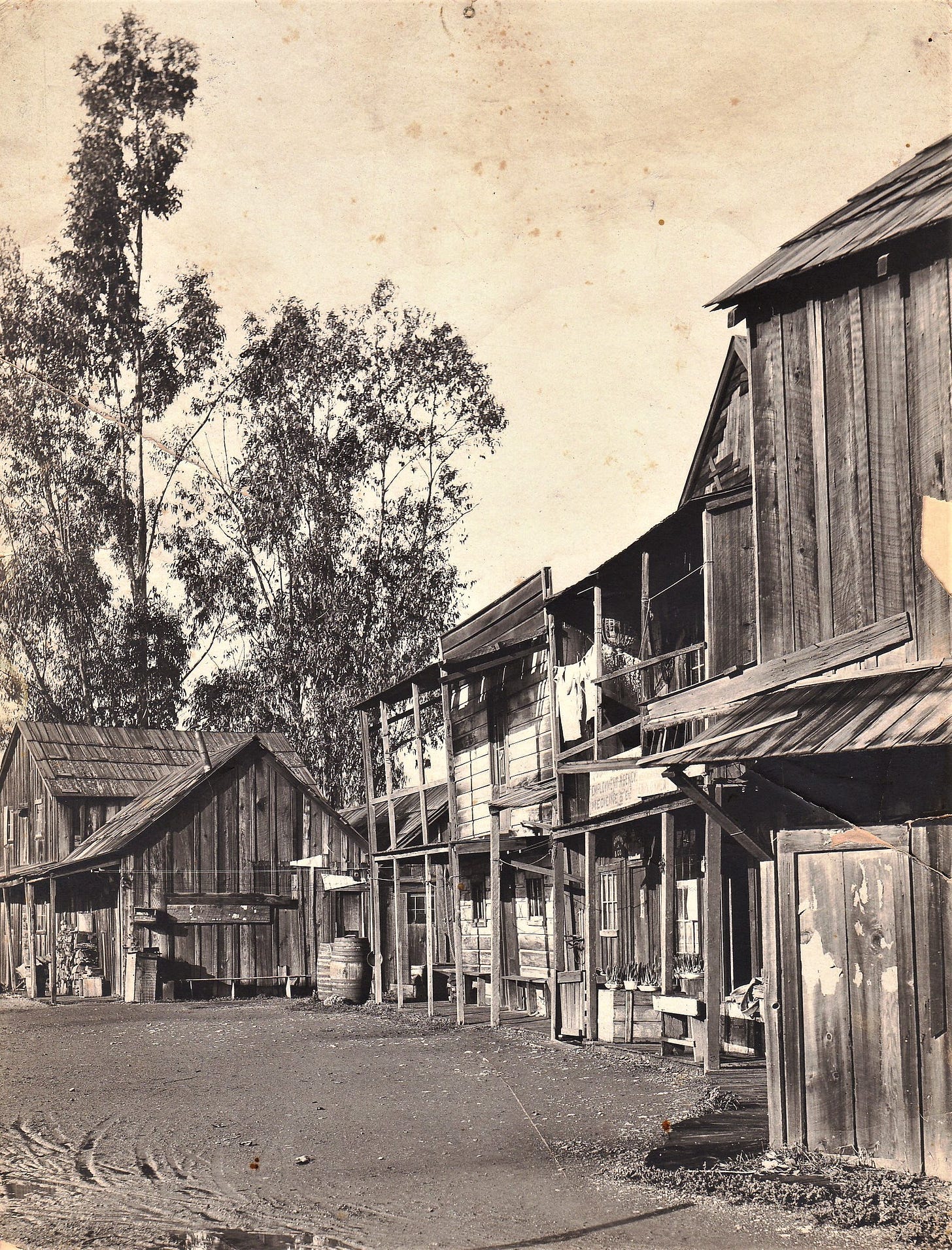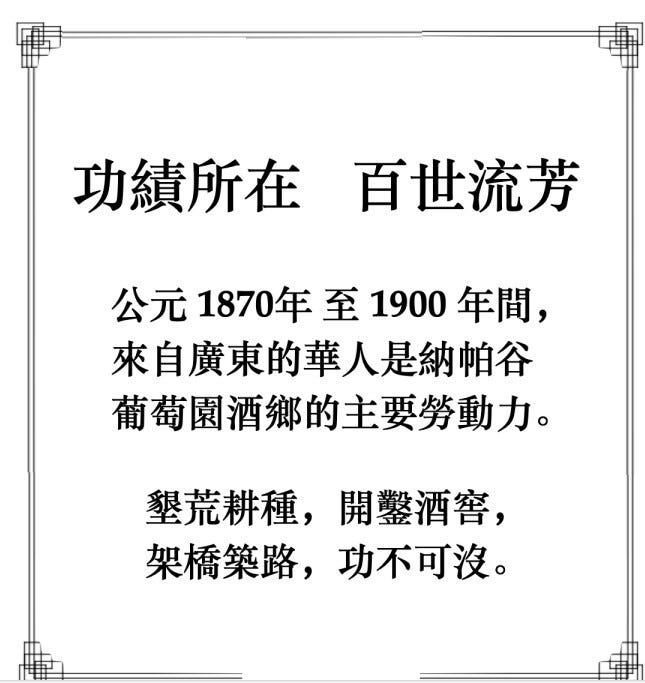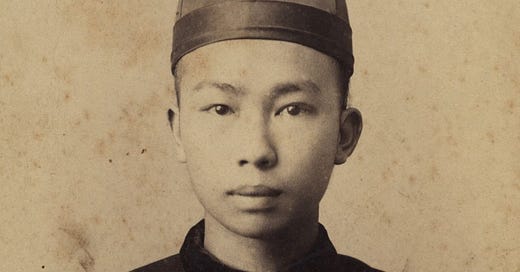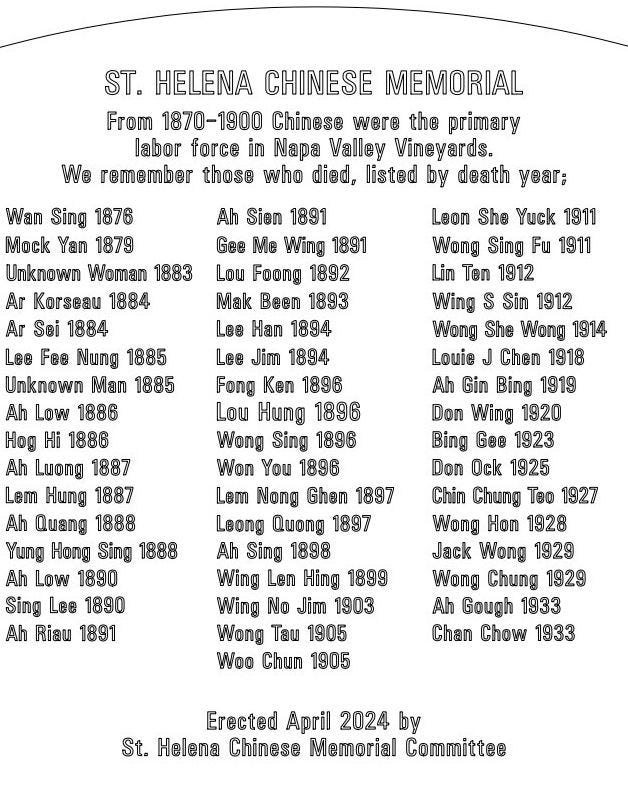ST. HELENA, Calif. — In 2023 the St. Helena Public Cemetery Association applied to the city of St. Helena for a grant to construct a memorial monument in the cemetery where former Chinese residents lie in unmarked graves. The request was granted.

From the 1870s through the early 1900s, hundreds of Chinese people lived and worked in and around St. Helena. They were significant portions of the workforce in vineyards, hop yards, quicksilver mines and on farms. They also worked as domestic servants, as cooks, in laundries and in various businesses in St. Helena’s Chinatown. Their labor was critical to the success of these early industries, and St. Helena today would not be the same without their contributions. While they lived and worked in the area, they were forced to live apart from white residents in Chinatown or near where they worked in the fields or mines. They were frequent targets of significant anti-Chinese discrimination from townspeople, newspapers and law enforcement.
Almost all Chinese laborers that worked in and around St. Helena were single men since their wives and families were legally prohibited from coming with them. They had strong ties to their home villages in China and sent money home to their families whenever they could. They knew it was possible that they could die while abroad in the United States. Culturally it was important to be buried with the proper ceremonies here and, if possible, eventually to be disinterred and returned to their homeland where they could be buried in their home village with their ancestors. While many Chinese workers did die in and around St. Helena, only a few were disinterred and returned home. Many of them made St. Helena Cemetery their final resting space.
Chinese residents who passed away were all buried in a segregated area of the cemetery named “Chinese potter’s field.” We know of at least fifty Chinese people who were buried there. They never had proper tombstones but rather diminutive stone markers with just a number on them. Tragically, in 1954, Sulphur Creek flooded and swept away much of the area in which the Chinese were buried. There are about 30 stone markers remaining.
The objective of the project is to install a granite monument in the Chinese potter’s field area that lists the names and dates of death of the Chinese people who were buried in the St. Helena Cemetery. The style will be similar to the other monuments at the cemetery. If we have sufficient funding, we will ensure the monument is in English and Cantonese.
This project benefits the entire community by recognizing the contribution of the Chinese workers to the beginning of St. Helena. Currently there is no public marker at the Chinese potter’s field location, so it is only recognized during select historic tours of the cemetery. This monument, especially if it includes historic context, will serve as a permanent acknowledgement of the role Chinese workers played and will also serve to educate all who visit the cemetery.
The presence of the monument will draw attention to part of St. Helena’s history that is often ignored or misunderstood. We hope it will encourage civic communication and dialogue about why the contributions of these Chinese workers were not commonly recognized in the past. While certainly not unique to St. Helena, we hope the monument will spark discussions of the anti-Chinese attitudes of earlier residents and remind us to commit ourselves to becoming a more inclusive city.

Napa Marble & Granite Works is creating the carved memorial with the names of 50 people buried in the Chinese plot at St. Helena Cemetery. The memorial committee is consulting with the Chinese Historical & Cultural Project of San Francisco for translation of the English into Cantonese on the back side of the black granite stone. In addition, a ground-penetrating radar study was done to ensure that the memorial is not placed on top of a grave.
The goal is to dedicate the finished memorial in April 2024. A blessing by Chinese Daoist priests is needed as well as lion dancers for a festive dedication celebration. The eventual plan is to mark St. Helena and Calistoga Chinatowns with historic plaques containing stories and photos.
All of these projects require more funding. Robin Leong, co-chair of the memorial committee, has created a GoFundMe campaign with a goal of $7,700. Here is the link.
If today's story captured your interest, explore these related articles:
Two exhibits examine 100 years of historic immigration into Napa Valley
Mystery solved: the stone ruin on Silverado Trail at Lodi Lane
Mariam Hansen is research director for the St. Helena Historical Society.







where's the link to make a donation to the memorial?
This is a wonderful project, but I have to add that Napa Valley needs some huge memorial to all the native people who were massacred here. We may not know the grave sites or the exact details (because nobody was left to tell the story), but we owe it to our children to have a place (or places) where they can learn about the injustice that was done to thousands of indigenous people. If you've never heard of this, see An American Genocide by Madley.